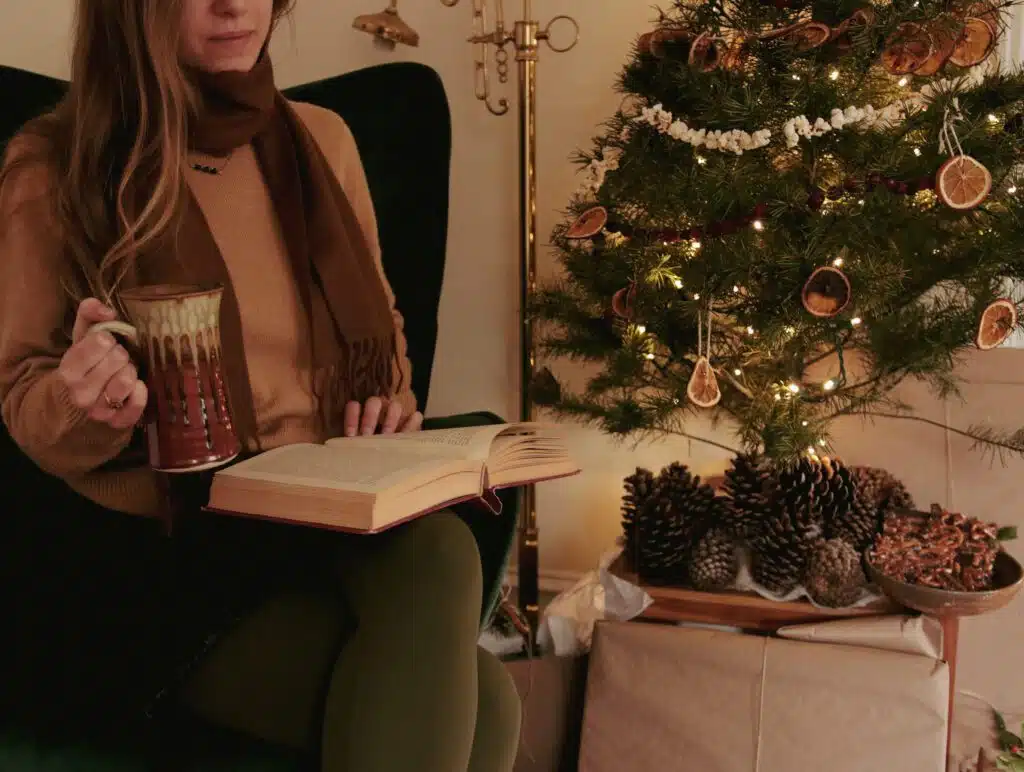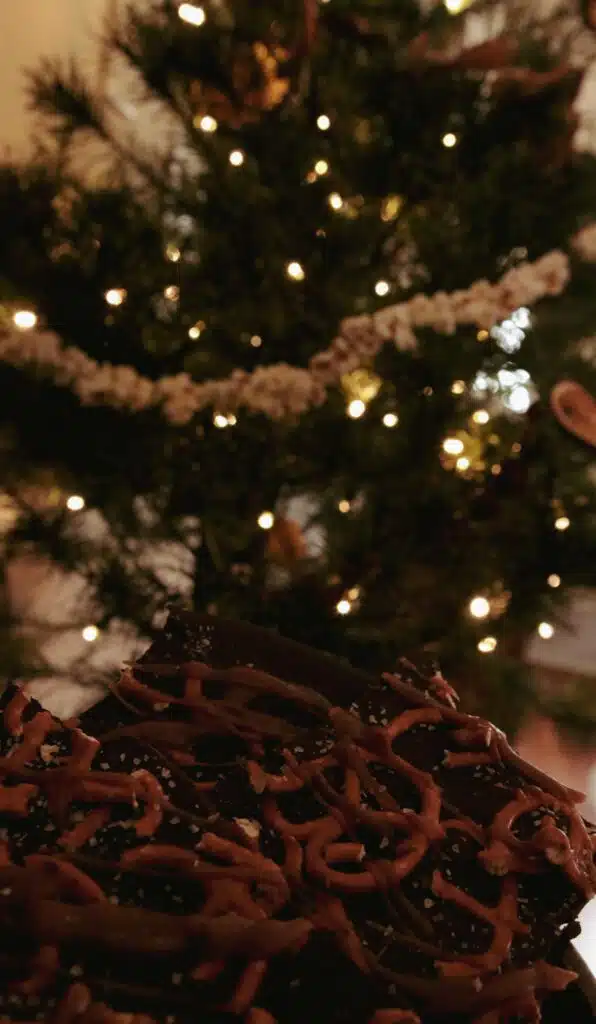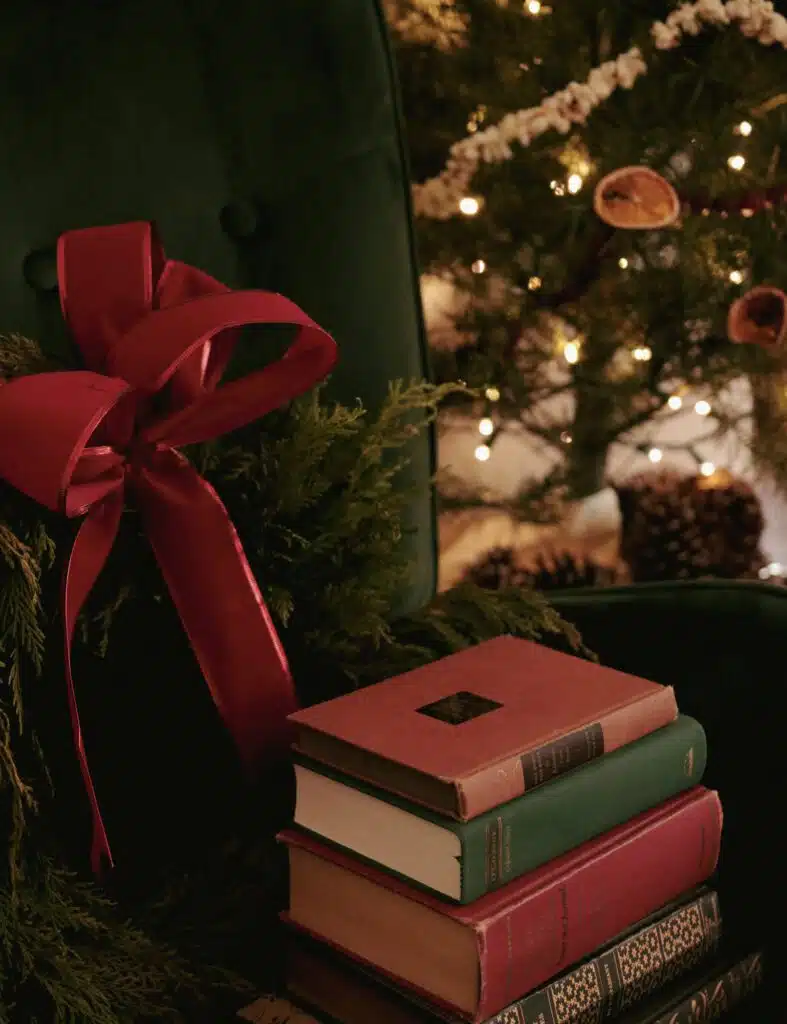
“Reflect upon your present blessings—of which every man has many—not on your past misfortunes, of which all men have some.”
-Charles Dickens, A Christmas Carol
The 12 days of Christmas, or Twelfthtide, is a beautiful way to enjoy the festive Christmas spirit long after the 25th of December. The entire Christmas season, called Christmastide, culminates on the 6th of January where many people celebrate Theophany (or Epiphany). Traditionally, the feast of Christmas begins on Christmas day and lasts throughout the 12 days. Twelvetide has been celebrated for centuries but many of the traditions we know and love are from the Early Modern through the Victorian time period.
Why should you celebrate this holiday?
Festivities are Fun
Why should the festivities end after the 25th? It is so much fun to continue celebrating, gathering with friends and family, and making merry during the 12 days. The 24 days leading up to Christmas can be so busy and hectic that making merry during Twelfthtide is much more relaxing now that we are no longer in preparation mode.
Slowing down
Taking the time to slow down after the busy month of December is so rejuvenating. I love doing some seasonal baking and reading after Christmas when there is much more free time. I also try to spend intentional time with my family and loved ones during this time. I am able to enjoy these activities much more when I am not running around gathering gifts and attending events.
Helps fight seasonal depression
Are you sad after Christmas, in those long dark days when life returns to normal? I am very susceptible to seasonal depression, but having things to look forward to during the winter really helps. Celebrating Twelfthtide gives us more of a transition between the excitement of the 25th and the normal life of January. I know not everyone is able to be off work or school for all 12 days but even spending more time with friends and family during Twelfthtide can help with the winter blues.
Making merry is a good thing
Sometimes there can be a little holdover from the Puritans (who outlawed Christmas in 1647) where people feel like making merry isn’t allowed, or that too much celebration is frowned upon, but I must. Christmas is rooted in angelic joy and peace on earth so why shouldn’t we celebrate these things? In Charles Dickens’ A Christmas Carol, Scrooge’s Nephew explains why making merry is so important during this time of year:
“‘There are many things from which I might have derived good, by which I have not profited, I dare say,’ returned the nephew. ‘Christmas among the rest. But I am sure I have always thought of Christmas time, when it has come round—apart from the veneration due to its sacred name and origin, if anything belonging to it can be apart from that—as a good time; a kind, forgiving, charitable, pleasant time; the only time I know of, in the long calendar of the year, when men and women seem by one consent to open their shut-up hearts freely, and to think of people below them as if they really were fellow-passengers to the grave, and not another race of creatures bound on other journeys. And therefore, uncle, though it has never put a scrap of gold or silver in my pocket, I believe that it has done me good, and will do me good; and I say, God bless it!‘”
You don’t have to be religious to Celebrate Twelfthtide!
Many people do enjoy Christmastide because it is a religious holiday, but if you are not religious or belong to another religion, you can still enjoy a festive time with your friends and family. You do not need to be religious to be charitable to those in need or to host a fun gathering during this season, so do what you can to make merry and help others!
How to Celebrate Twelfthtide

Host a party
Hosting a gathering during the 12 days is a great way to keep the festivities going. My family likes to host a traditional party with lots of punch, music, and parlor games; my dad always crafts a signature cocktail, and we serve mountains of leftover Christmas cookies. Even a small intimate game night can be very festive and fun. Traditionally, a Twelfth night party was held on the last night of the Twelfthtide as a climax to the holiday. These parties, dating back to the middle ages, are grand affairs with dancing, drinking, and games. You can also read Shakespeare’s Twelfth Night for inspiration!
Postpone some of your Christmas baking
This is a great time to try out new recipes or make some of the classics. Call your grandparents and ask about their favorite things to make during this time. Food is such a special way to connect with every generation. This is also a great time to give baked goods to friends and neighbors.
Give gifts, kindness, and charity
Twelfthtide is a beautiful time to give in any way. Giving of your time is a great place to start. Many people volunteer in December, but food banks and soup kitchens are often understaffed after Christmas Day. You can also gather donations from friends and family to give to a charity that is dear to your heart. Practicing small acts of kindness is another way to start the new year off right!
Enjoy festive food and drink
There are so many Twelfthtide recipes but to name a few:
The French Twelfth Night Cake (Gateau des Rois – King’s Cake)
The English Twelfth Night Cake
Participate in other Traditions
There are many more traditions you can enjoy during this time, some of my favorites include:
Wassailing
From a little research, I discovered a tradition Called Wassailing:
“Wassailing was an old country tradition that took place on Twelfth Night or “Old Christmas Eve,” especially in areas where cider apples were grown. Right before dark the wassail (spiced ale or hard cider topped with roasted apples) would be prepared and ladled into the special wassail bowl (similar to a punch bowl with handles). The village would gather at the orchard after dark with the wassail on hand and proceed to bang pots, shoot off guns, and make a racket to frighten away any evil spirits that could still be lurking about on this last night of Christmas. This commotion would also help to begin to “wake up” the trees from their winter hibernation. The trees were blessed with thanks and urged with rhyming chants to produce an even better crop in the new year. The oldest, most venerable tree’s health would be “toasted” with a piece of wassail-soaked bread or cake placed in its branches.
If wassail was left over after regaling the trees, then the ceremonies would conclude with the villagers quenching their own thirst before returning home. In some areas, the young people would go from house to house in the village, singing wassail songs and receiving small gifts or treats in return.
Wassail is an old Middle English contraction of waes hael, meaning “be health” or “be whole,” that was derived from the old Norse ves heill “to be healthy.” The reply to waes hael was drinc hael, or “drink and be healthy.” The modern expression “hale and hearty” shares the same roots.”
The Lord of Misrule
In Elizabethan times, a temporary Lord of Misrule (usually chosen from among the servants) presided over the festivities of Twelvetide, while the nobility acted as servants. Today, people sometimes crown a symbolic Lord of Misrule at the Twelfth Night party.
Saint Stephen’s Day (Dec 26)
Because Saint Stephen is the patron saint of horses, it is customary to have horse shows, parades, and races on this day. It can also be customary to decorate your horse (if you have one) on this day.
Innocents’ Day (Dec 28)
Many religious communities celebrated their youngest members on this day. It would be customary to give the youngest of the party a special place at the table and crown on this day. This tradition really resonates with me because I think this would be a sweet way to honor the youngest during Christmastime.

This is such a beautiful season of warmth and joy; I hope each one of you enjoys a festive time with friends and family throughout the Twelfthtide. If this blog brings you some inspiration for celebrating an old-fashioned Christmastide, please leave a comment and share!
Happy Christmas, everyone!
Such a great read! Love the part about innocent’s day.